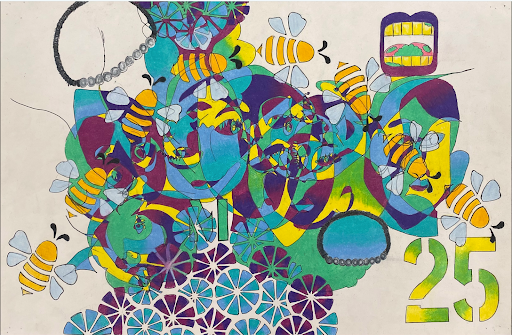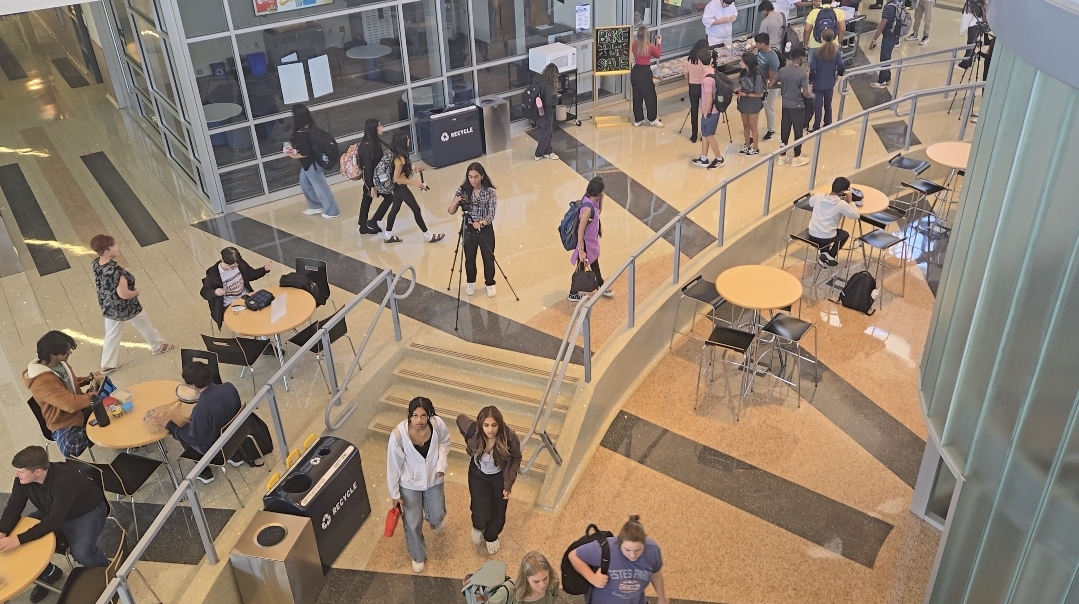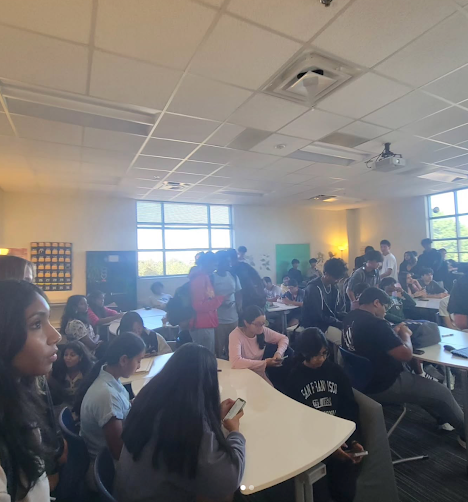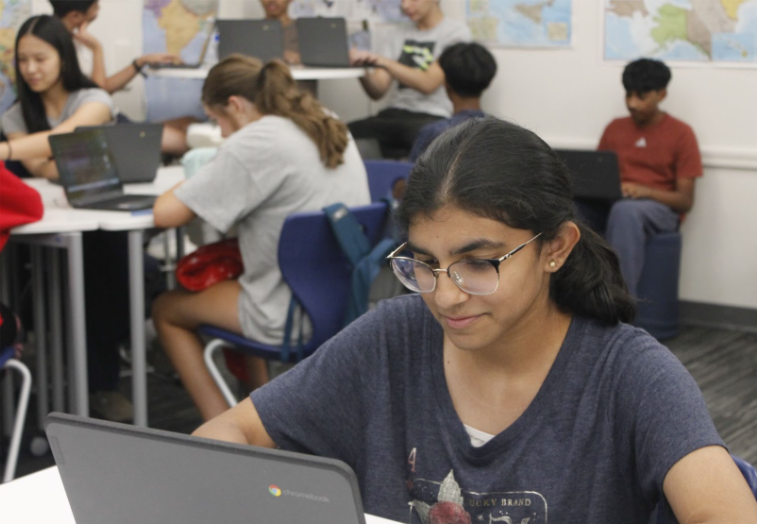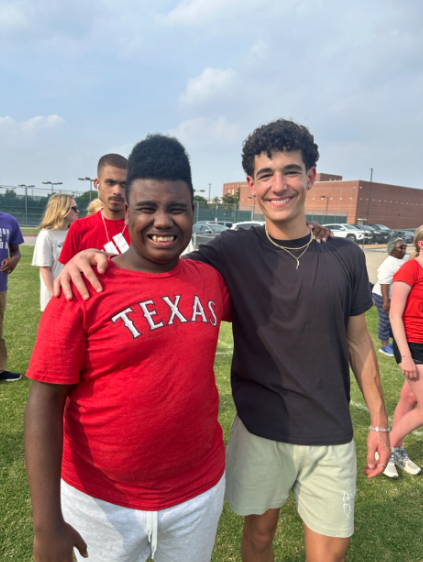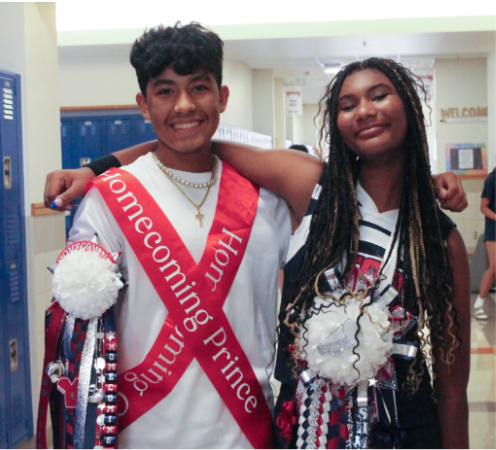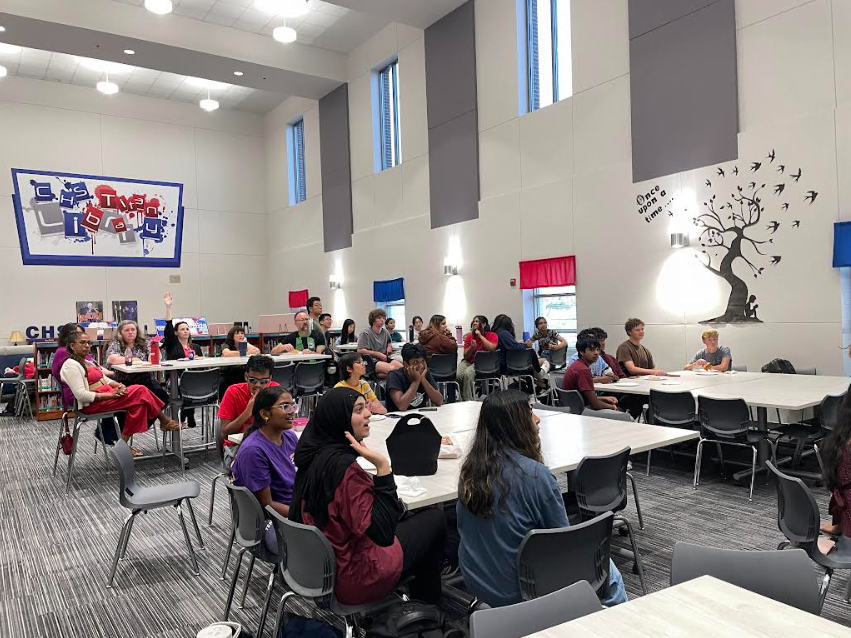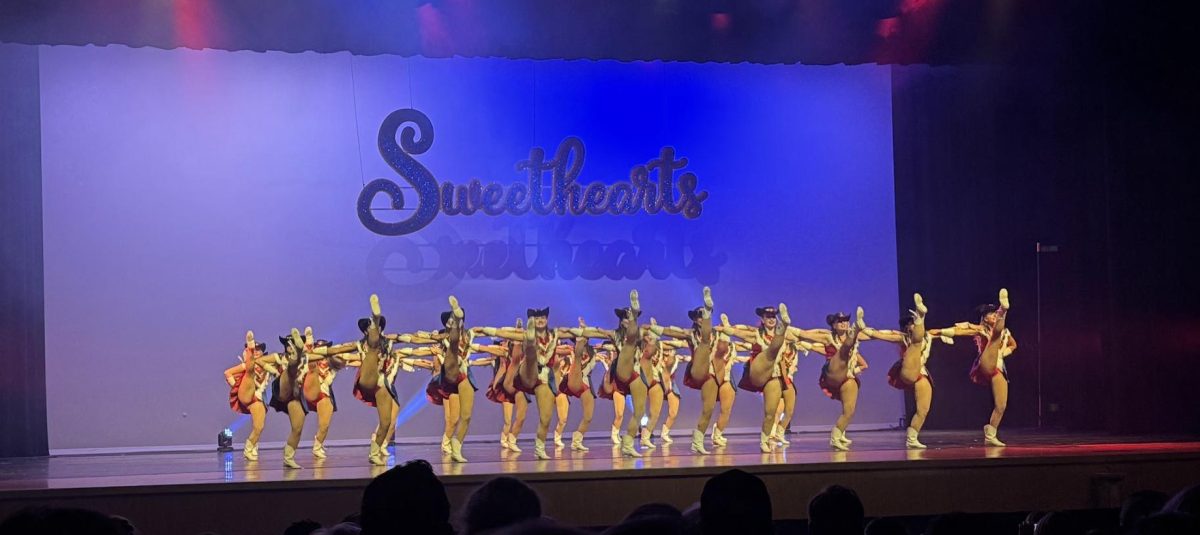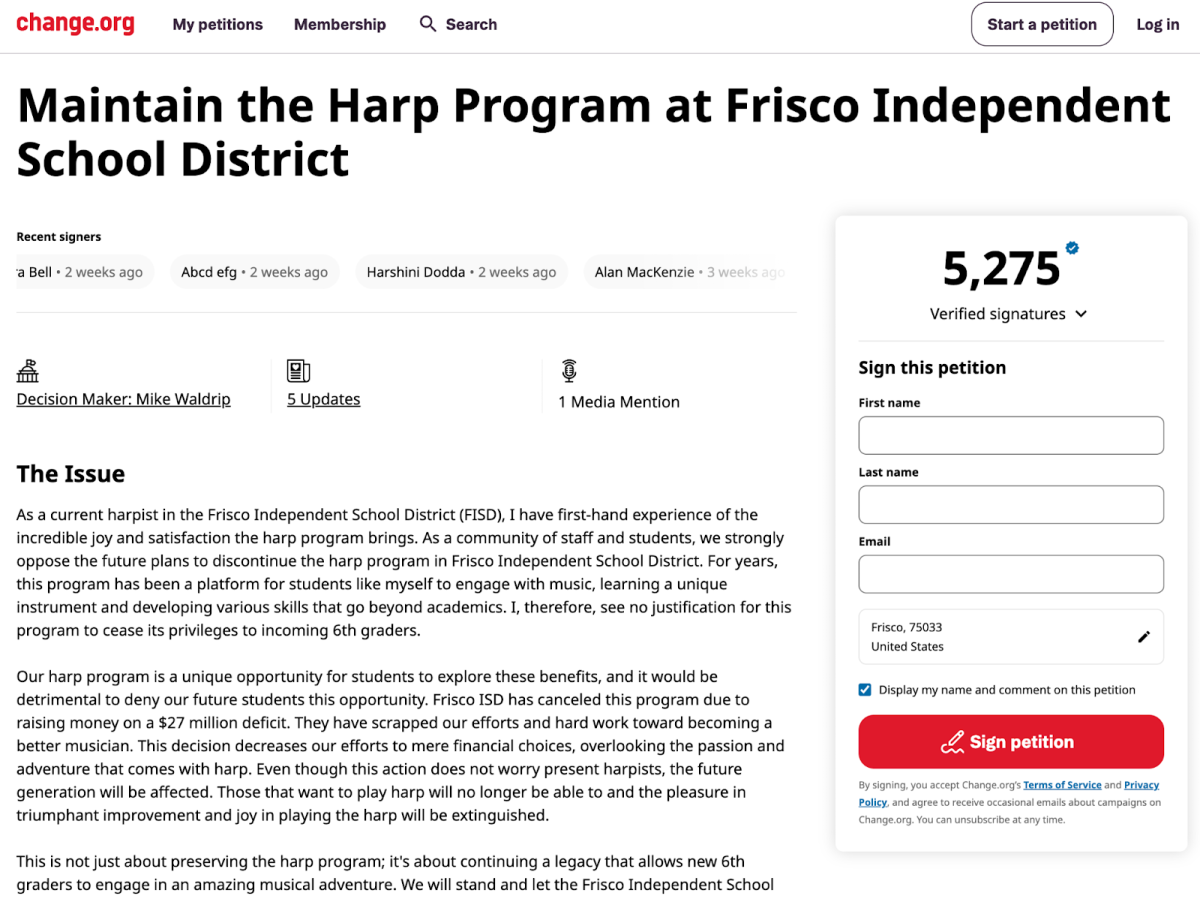FRISCO, TX- Music plays a role in spreading creativity and enjoyment in the lives of many. A shared love of music helps connect people despite their differences . Music improves students’ day-to-day lives. Music makes an impact in almost every facet of a student’s life, helping them create connections, relax, and move through their extracurriculars.
Having music as part of their daily activities has helped teach students many important life lessons. Participating in musical activities such as playing an instrument requires lots of hard work and dedication with practice. Shrimayi Mulukuntla, a student in Centennial Band, explains how practice for marching band season impacted her.
“Long days of practice showed me resilience, grit, and time management,” she said.
Musical extracurriculars are popular outside of school as well. As is their nature, outside extracurriculars require the use of free time distinct from school-related activities and homework. Saindhavi Hariharan, a junior at Centennial High School, plays the piano and harp outside of school and has learned lessons that have shaped her as a person.
“Through learning how to play both instruments, I learned time management, how to be more responsible, and have just matured as a person,” she said.
Music is a fundamental part of connections between people both socially and emotionally. People make friends through the extracurricular activities they pursue. People may choose to join musical-related activities due to encouragement from friends, or other people they value.. Kinari Diaz, a junior in Symphonic Orchestra, agrees with how participating in the same activity as her friends, can help create meaningful friendships.
“It’s like being with the same people since the beginning when you all play the same instrument,” said Diaz. “Liking the same thing creates a connection and getting along with your section pays off [towards friendships].”
Being in similar music classes or activities can lead to relationships with other people who share the same passion for music. This can lead to discussions about shared activities and foster connections.
“A couple of my friends… play piano so we talk about repertoire and our future plans for playing and some of my friends have similar taste in music and we talk about it,” said Hariharan.
Teenagers undergo a lot of stress in their daily lives with AP classes and balancing their hectic work schedules, extracurriculars, and other commitments. Listening to music they connect with and making playlists that help uplift and relax can significantly relieve stress. Additional activities such as concerts and playing an instrument can create a relaxing environment to deal with stress. Research has shown that music has beneficial effects on the stress levels of students.
According to the National Center for Complementary and Integrative Health, “a second [research] review looked at 47 studies (2,747 participants) of music therapy (excluding other music-based interventions) and found an overall medium-to-large beneficial effect on stress-related outcomes.”
Music helps defeat boredom and has been a great way to spruce up boring activities like homework and work. While having a schedule as a student may be comforting, a day full of going to school, doing homework, doing extracurriculars, and going to sleep each day can become overly repetitive. Music can be an effective way to enhance an otherwise monotonous routine, and find enjoyment in the simple, small moments. Different genres of music help provide enjoyment to different types of people and complement different types of moods.
“I listen to pop, and it has helped me get through long car drives and college applications,” Mulukuntla said.
Music can bring people together and improve student life. From AC/DC to Mozart, music motivates students to take on their work, get it done, and keep moving forward. Music creates a flow students can ride to the end of their task by motivating higher engagement. Certain genres of music can help students concentrate better and be more productive as a result.
To wrap up, music is a shared experience that significantly influences students, fostering creativity, connections, and personal growth. Music impacts student’s lives by bringing extracurricular activities, life lessons, and friendships. Studies confirm music’s stress-relieving effects on students, offering respite from academic pressures. Certain genres like lo-fi or classical music aid concentration during homework or studies and enhance productivity. In essence, music’s versatility enriches students’ lives, infusing joy and motivation while fostering social connections and personal development.




